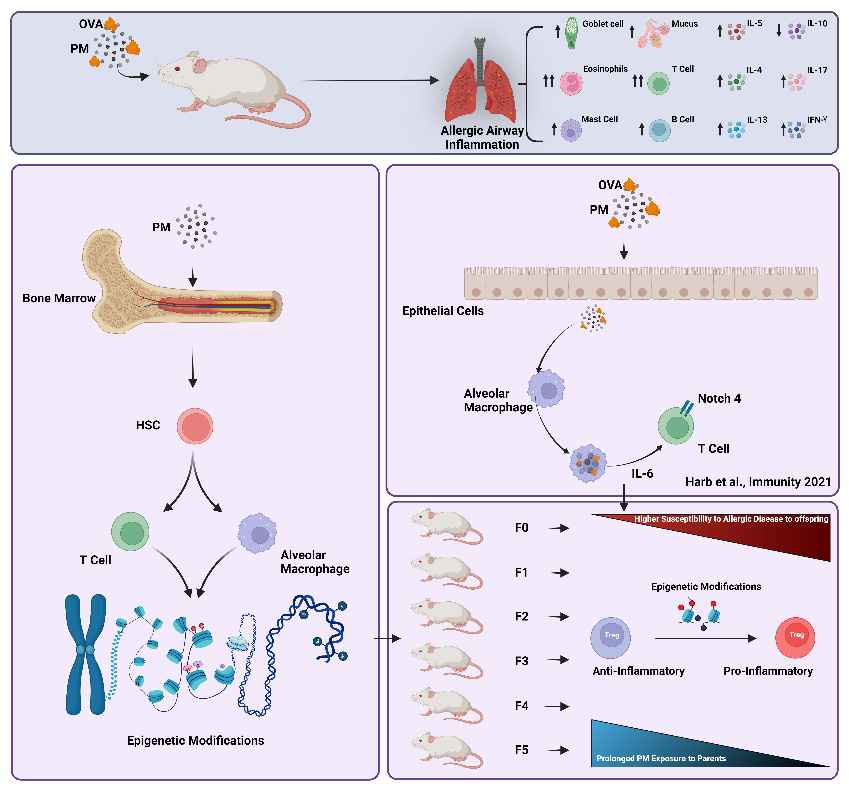Hani Harb Group
Infectious Immunology

In my tenure I have worked extensively with the lung. Asthma, COPD and lung infections were the main diseases that I have been focusing on. In that regard, I have worked on the role of T-cells in the pathogenesis of lung inflammatory diseases. Furthermore, I specialize in Epigenetic regulation and Regulatory mechanisms of tolerance in the lung. Our biggest finding is Notch4 in Regulatory T-cell (Treg) identified in both Asthma and Viral lung infections, which is now being considered in pre-clinical studies as a new therapy for various lung inflammatory diseases.
Currently our lab in Dresden focuses on tolerance mechanisms in the lung and liver. Furthermore, we investigate rare, newly-discovered human pathogens and their pathological mechanisms in the body both on innate and adaptive immune responses. In details, we try to investigate the role of particulate matter, a massive pollutant, on developing mal adaptive immune reaction later in life or transgenerationally via epigenetic changes. Moreover, we try to understand tolerance mechanisms in the lung affected by extracellular vesicles (EVs) in various diseases, namely Asthma, COPD and viral lung infection. In addition to that, we try to investigate mechanisms by which rare human pathogenic bacteria can influence our immune system leading to disease. For that, we are currently working with different bacterial species namely, Roseomonas mucosa, Wohlfahrtiimonas chitiniclastica and Chryseobacterium indologenes.
Liver-wise, we try to understand the contribution of Treg cells in the pathogenesis of Non-Alcoholic Fatty Liver Disease (NAFLD). For that we employ both mouse models as well as human studies to investigate that and the role of dietary intervention on tolerance breakdown and re-establishment.
Future Projects and Goals
- The role of microbiome and virome sensing in the lung in homeostasis and infection
- The Role of Regulatory T-cells in the pathogensis of Post COVID-19 syndrome
- Holding the fort: Microbiota components in controlling human pathogens
- The epigenetics of the particulate matter in the lung: The long-lasting effect of pollution on maladaptive trained immunity
- Role of Tolerance mechanisms in NAFLD and Diabetes
Methodological and Technical Expertise
- Chromatin Immunoprecipitation (ChIP)
- Flowcytometric analysis and FACS cell sorting
- Extracellular Vesicles characterization, isolation and analysis
- Mouse models of various diseases and tissues
- T-cell analysis
